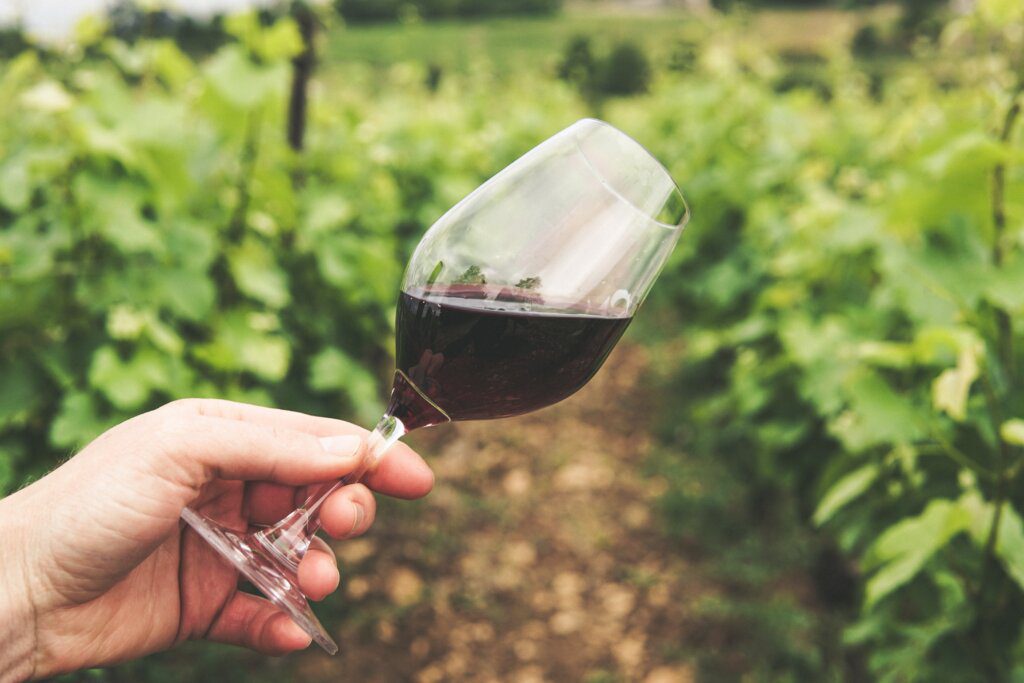Robin Lail’s veins are filled with the heritage of Napa Valley wine. Gustave Niebaum, her great-granduncle, established Inglenook Vineyards in 1879 and contributed to the development of Napa Valley’s reputation for fine wine. After Prohibition, during Napa’s second heyday, her father, John Daniel Jr., increased that reputation. In 1964, under pressure from his creditors, he was forced to sell Inglenook to United Vintners, which was ultimately absorbed by Heublein Inc. This marked the beginning of an era of corporate takeovers and deteriorating quality as Inglenook became into a jug wine brand.

Lail, who was at the time a young lady pursuing a career in finance, returned to wine by working for Robert Mondavi, who was the impetus for Napa’s recent renaissance as a top-tier wine region. For better or ill, she contributed to the establishment of Auction Napa Valley in 1981, ushering in a period in which Napa would come to be associated with luxury and money. She developed Dominus in collaboration with renowned Bordeaux vintner Christian Moueix and Merryvale Winery with Bill Harlan, who later came to personify Napa cult wine with his own label. Lail founded her own winery in 1995, and her daughters Shannon and Erin are partners.
The phylloxera catastrophe of the 1990s, when entire vineyards had to be replanted due to an insect infestation, was something she witnessed along the way as Napa managed to survive. Corporate fusion proceeded as Constellation Brands absorbed Mondavi’s winery after it went public. Beaulieu, Sterling, and Beringer, three further Napa landmarks, also became corporately owned. At the same time, film magnate Francis Ford Coppola liberated the original Inglenook estate, winery, and brand name from corporate control; the tale of how he did it is deserving of its own book, if not film.

Today, Lail believes that Mother Nature herself poses the greatest threat to Napa Valley, not tiny insects or enormous corporations. From 2017 to 2020, the Glass Fire devastated the northern end of Napa Valley and poisoned much of the region’s vintage with smoke, wreaking havoc on the valley and Northern California as a whole. She joined the Porto Protocol in 2019, a Portuguese wine industry organization that supports measures to combat climate change, in order to help American wineries.
Not only did this year’s flames pose an existential threat, but also the drought and extreme heat.
She said, “Up north, people used to make jokes about buying vineyards. But there were about 300 fires in British Columbia in June. Then the Northwest was covered in a heat dome, with Portland seeing temperatures of above 110 degrees. How do we keep making wine in these circumstances? What’s more, how can the wine sector get involved in the fight against climate change?
Lail compared this to the personal decisions we can make, such as installing solar panels on our roofs, composting food waste, and parking electric vehicles in our driveways. Carbon farming is what it means for Lail Vineyards. No tilling in the vineyard; cover crops between vine rows. No gas-powered vehicles; in the spring, sheep trim the cover crop.

A carbon-farmed vineyard, regrettably, is not a beautiful vineyard, she claims. “We’re not wasting time on that.”
Lail notices Napa experimenting with grape types more suited to a warmer environment as she looks outside her own farms. One of possibilities, according to her, would be carignan, a grape that was originally widely planted in Northern California vineyards before cabernet became the dominant varietal. She recalls her early years with Moueix at Dominus, “We had 80-year-old carignan grapes in Napanook vineyard in the 1980s.” They planted cabernet in place of those grapes.
From a business standpoint, she believes that wine’s Achilles’ heel is its packaging. The highest carbon drain occurs during shipment, and packing, specifically bottle weight, is a significant problem, according to the speaker.
Of course, vineyards are making additional measures to combat climate change. By 2050, the Australian wine sector hopes to achieve carbon neutrality. In addition to being a co-founder with Torres Wines of International Wineries for Climate Action, which aims to be “net-zero” by 2050, Jackson Family Wines of California recently unveiled a 10-year sustainability and climate action strategy for its wineries called Rooted for Good. As they adopt environmentally friendly viticulture, various wineries strive to get sustainable, organic, biodynamic, and regenerative organic certifications. Wineries that are certified B Corporations also incorporate social responsibility initiatives.
Lail shares her own dissatisfaction with the fragmented nature of these anti-climate change initiatives. However, she expresses hope that the message of the rousing chorus will be heard.

She claims that “We the People,” a resounding cry from the majority of people in this nation, were responsible for ending the Vietnam War. I genuinely think that the voice of climate change is becoming more and more audible.
